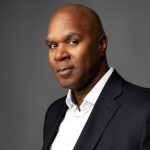
by Amri B. Johnson, CEO of Inclusion Wins and author of “Reconstructing Inclusion: Making DEI Accessible, Actionable, and Sustainable“
Inclusion has never been a hotter topic. Organizations are making unprecedented investments in DEI. Leaders want diverse teams to develop new ideas and drive innovation. Employees want to work in a place that values their unique perspective. And everyone wants to get along and feel they are part of the team. That’s why so many companies have sprung to quick action, adding inclusion to their mission, investing in unconscious bias training, and bringing in speakers to talk about race and racism.
Yet despite these good intentions, results are meager, indeed. People still feel excluded and undervalued, tensions simmer beneath the surface, and the organization struggles (and often fails) to make any measurable headway. This is because, all too often, DEI programs are reactionary, supplemental, and cosmetic rather than systemic.
To create real, sustainable inclusion, you’ve got to make everyone feel valued, regardless of the identities and attributes of the groups they ‘belong’ to. Organizations should focus on the systems that create disparities that hold all people back and solve for those.
In other words, instead of basing inclusion on the single focus of identity (the thing that too often divides us), my preferred approach hinges on what we all have in common — our humanity. We need to create the conditions and systems that help everyone thrive.
Inclusion is for everyone.
Focusing on single identities (whether that identity is Black, LGBTQIA++, Latinx, neurodivergent, differently abled, etc.) backfires because there will always be people who do not feel included, and they may not always belong to the typically disparaged groups.
Change can happen only when everyone feels that they are a part of the movement toward inclusion. There is no ‘Them.’ That’s the way to create sustainable change.
Most of us have some degree of privilege. It’s useful to be aware of it.
As a Black man, I am considered by some to lack racial privilege. On the other hand, I am male, heterosexual, upper-middle class, and born in America, all of which are considered privileges. Examining our own areas of privilege can help us discover what we’ve learned from belonging to these groups that we can use to create those same favorable conditions for everybody.
When we hold up the mirror for ourselves and for one another — not to find fault with any one group, but to understand that all of us have certain amounts of privilege — we will inevitably see that there are disparities to address. And as we learn about these disparities, we can take actions that elevate everyone together.
Social tensions always exist. They become a problem only when you don’t know how to deal with them.
Tensions exist in any system where there is difference of any kind. Even when it is uncomfortable, this tension is necessary. (Tension is what holds up a bridge, for example, and it’s also crucial for societies as they evolve and grow.) So, when you get different groups of people working together, it stands to reason that there will be tensions.
That’s not a bad thing. The danger comes when you don’t know how to navigate the tensions and complexities that come from those differences.
Cultural intelligence is key.
Remember all those tensions that exist no matter what? Thriving can occur when people understand how to address and work with those tensions. As more organizations go global, cultural intelligence or “CQ” is a must-have for employees. This is a specific form of intelligence focused on an individual’s ability to grasp and reason correctly in situations characterized by cultural diversity. Organizations should prioritize educating leaders and employees so they can thrive in a multicultural work environment.
Through collaboration, we can harness CQ to find a Third Way.
The most culturally intelligent individuals look for a common problem and work to find a solution that can be reached only together.
That’s exactly what Levi Strauss did when they learned that two of their suppliers in Bangladesh were using child labor to make their clothes. Levi’s was pressured to immediately sever their relationship with the suppliers, a CQ 1-2 approach. But Levi’s knew that many of these children were the sole economic providers in their families. Having children under 14 working in factories was against Levi’s ethical standards, but they couldn’t reconcile taking food out of these kids’ mouths. Levi’s worked with the suppliers to develop a creative solution. The contractors would continue to hire the kids, but they would pay them to go to school rather than work. Levi’s would cover the kids’ tuition, and when the kids turned 14, they would come back to the factory and get their jobs back.
Inclusion means everyone thrives.
When true inclusion is achieved, all stakeholders are thriving: They are fundamentally happy, they are healthy (mentally, physically, and emotionally), they are progressing toward their goals, and they feel as if they belong. Even struggling organizations can transform when they tailor all their systems around helping everyone thrive.
More and more, employees are demanding this kind of workplace. They want to be recognized and supported as a unique human being with unique needs and hopes and dreams. Corporations that create a culture of thriving will obviously have an edge in the war for talent.
An Inclusion System is the way to “get there” (and then go further).
Thriving is achievable with the help of an Inclusion System. This is a framework that creates a path toward individuals’ and their respective organizations’ adaptively creating the conditions critical to inclusion becoming normative — accessible, actionable, sustainable, and positively contributing to the organizational mission. This systemic approach allows organizations to solve existing problems while continually adapting to whatever new challenges or goals arise in the organization over time.
When it’s done right, inclusion that focuses on what humans need to belong goes far beyond DEI work and infuses your culture with thriving across the board. Thriving people tackle problems, collaborate, work efficiently, and perform at their highest potential. Because everyone thrives, the organization thrives. There’s no better way to drive success.

Amri B. Johnson is the author of “Reconstructing Inclusion: Making DEI Accessible, Actionable, and Sustainable“. He is a social capitalist, epidemiologist, entrepreneur, and inclusion strategist. As CEO/founder of Inclusion Wins, Amri and a virtual collective of partners converge organizational purpose to create global impact with a lens of inclusion.
via https://www.AiUpNow.com
January 10, 2023 at 10:47AM by Contributor, Khareem Sudlow
